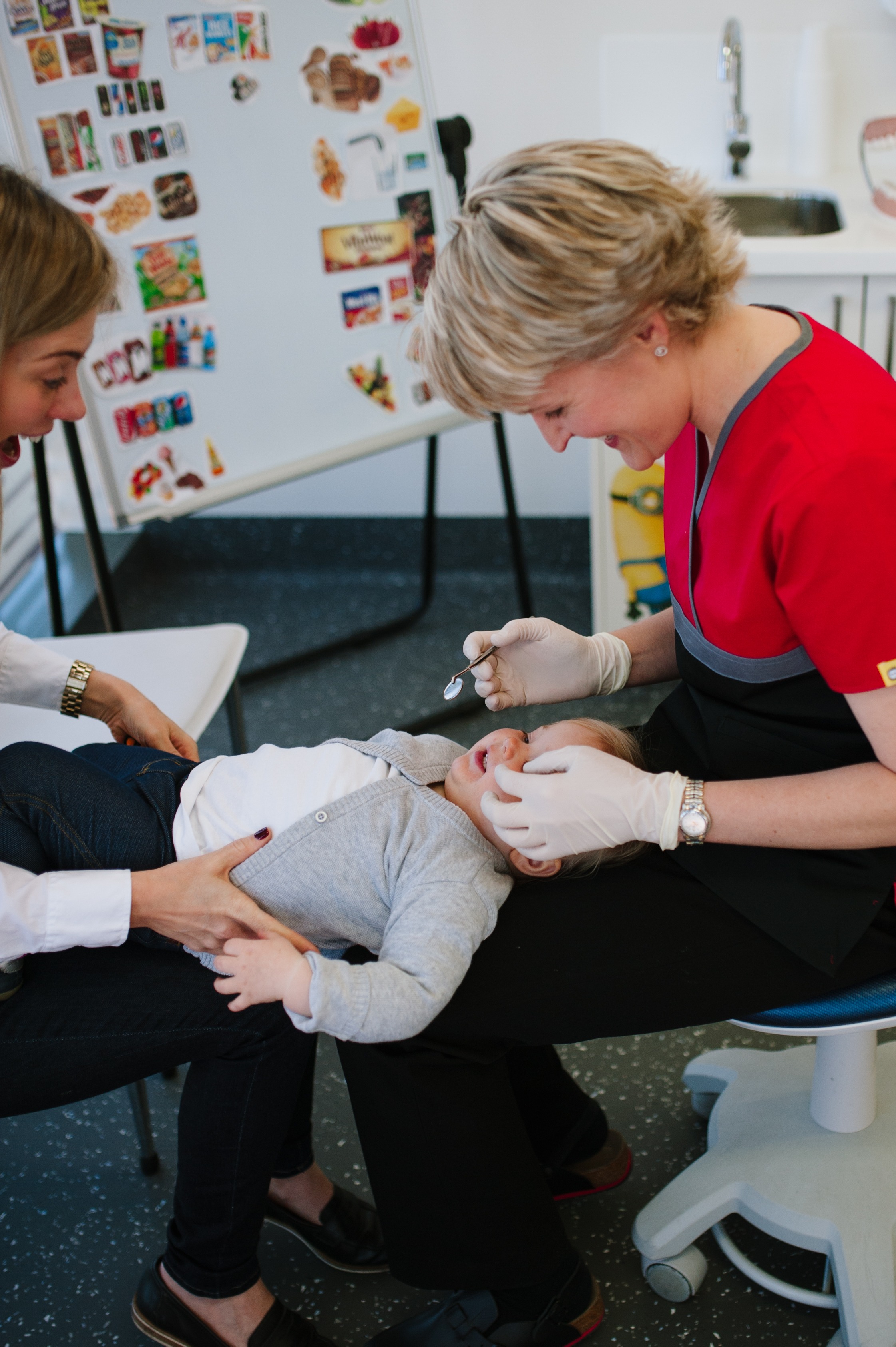5 myths about the first dental check-up
We hear from lots of parents that they’ve been told not to worry about the first dental visit at 12 months. This misguided advice can come from other parents, health professionals and even other dentists.
Here are some of the things you DON’T need to worry about when booking a first dental visit (we’ve got this!)
Myth: My child is too little to sit in the chair

Fact: Your child can sit in the dental chair when they are comfortable to do so. Until then, we can check their teeth whilst they are on your lap.
Myth: My dentist said don’t worry about check-ups until they go to school
Fact: The guidelines recommend the first visit around the age of 12 months, partly because 40% of all kids will have had decay before they hit school. Going for a ride on the chair at one of your own dental visits is great for familiarisation but doesn’t count as a thorough check-up.
The Australasian Academy of Paediatric Dentistry suggests looking for the following from a first visit and when choosing a ‘dental home’ for your child.
- Comprehensive oral health care, including acute care and preventive services
- A comprehensive assessment for oral diseases and conditions
- An individualized preventive dental health program based upon a caries-risk assessment and a periodontal disease risk assessment
- Anticipatory guidance about growth and development issues (i.e., teething, finger-sucking or dummy-sucking);
- A plan for acute dental trauma
- Information about proper care of the child’s teeth and gingivae. This would include the prevention, diagnosis, and treatment of disease of the supporting and surrounding tissues and the maintenance of health, function, and aesthetics of those structures and tissues
- Dietary counselling
- Referrals to dental and other health specialists when care cannot directly be provided within the dental home.
Myth: My child won’t be cooperative
Fact: I’m not sure about your child but depending on the alignment of the stars, my toddler isn’t cooperative for getting dressed, nappy changes, toothbrushing, meal times, car trips, shopping, walking from A to B bedtime and pretty much every other aspect of living.
It’s normal, and we’re not worried.
What we do try and make sure is that we’re going at your child’s pace as best we can, allowing them plenty of time to get used to the new faces and environment they’re seeing.
Myth: My child doesn’t have enough teeth to look at
Fact: By 12 months most kids will have some teeth to look at, but even if they don’t, the dental examination is just a small part of the big picture.
The best time to arm yourself with knowledge about preventing decay, first foods, healthy diets, managing fussy toddlers and toothbrushing is BEFORE the teeth have come through.
Myth: They’re just baby teeth that are going to fall out anyway
Fact: I see parents time and time again who knew or suspected their child had some dental problems but thought the teeth were going to fall out soon, so put it on the back burner, only to end up with a child with the most excruciating toothache.
Most primary molars fall between the ages of 10-13 years, so most often, leaving decayed teeth results in a really poor outcome for your child.
Reflect on what your dental legacy looks like.
The sum of our influences on how we view the importance of teeth and health can be called our ‘dental legacy‘. Visits from 12 months of age is a fantastic way to jump-start a great dental future for your child.
